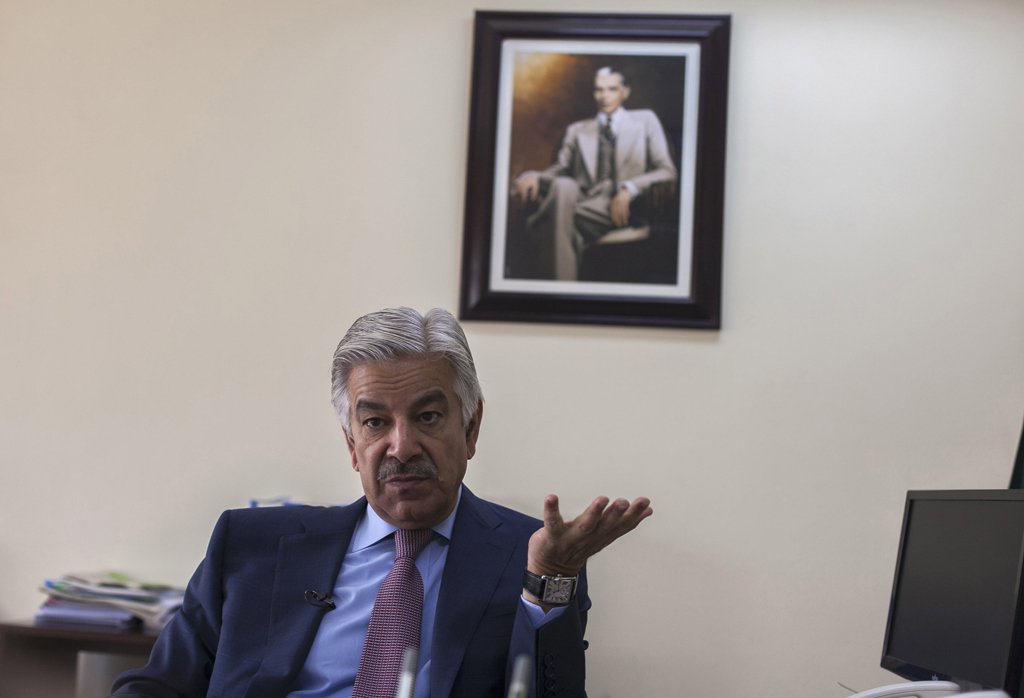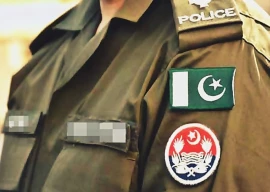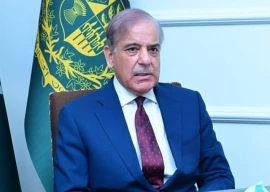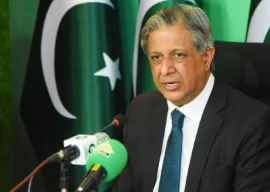
Speaking to BBC Urdu about the Pentagon chief's recent visit to Pakistan, Asif said the government raised the matter of India’s future role under Trump administration’s new policy for Afghanistan and the region in front of US officials in Islamabad on Monday.
The foreign minister said the United States had made Pakistan believe that there will be no military intervention by India in Afghanistan.
Pakistan has repeatedly expressed its serious concerns regarding India’s role in Afghanistan to the US and Afghan leadership.
During the US defence secretary’s visit to New Delhi earlier in September, his Indian counterpart had said that India has no intention to send its troops to Afghanistan and that the country was increasing economic relations with Afghanistan to assist the war-torn country.
US ready to address Pakistan's legitimate concerns, Mattis assures Gen Qamar
Later, the defence secretary briefed the US Armed Forces Committee saying that India’s decision was due to Pakistan’s reservations so that it did not consider itself defenceless on the western border.
Foreign officials told BBC that before the meetings, there was ‘complete coordination’ between the country’s political and military leadership and talks with the US delegation were held at the ‘level of equality’.
According to sources, the issue of India’s role in Afghanistan remained top of the agenda for Pakistan during the visit of US defense secretary, while the United States asked Pakistan to act against Haqqani network and other elements targeting the US and Nato forces in Afghanistan.
US defense secretary told Pakistani officials that the United States was ready to play its role in addressing Pakistan’s reservations. “We are not putting forward any demands to Pakistan, but we want to work together.”
COAS briefs top commanders on military diplomacy after Mattis visit
Meanwhile, Army Chief General Qamar Javaid Bajwa told James Mattis that terrorist hideouts had been terminated in Pakistan. However, the country was ready to review if there were militants taking advantage of Pakistan’s sympathy for Afghan refugees or not.
According to foreign officials, the political leadership of Pakistan told the United States that repatriation of Afghan refugees must be ensured. The United States was also told that Pakistan, with its limited resources, was trying to restrict movement of Haqqani or any other extremist organisation at the Pak-Afghan border, for which a border fence was also being erected.
However, the process of differentiating between Afghan refugees and terrorists was not an easy task.
Earlier, according to the US Embassy, James Mattis said that Pakistan will have to accelerate the efforts to eliminate terrorists on its soil. General Qamar, on the other hand, says Pakistan has done more than what was expected of it in the war against terrorism.



































1713853507-0/MalalaHilary-(2)1713853507-0-270x192.webp)








COMMENTS (2)
Comments are moderated and generally will be posted if they are on-topic and not abusive.
For more information, please see our Comments FAQ